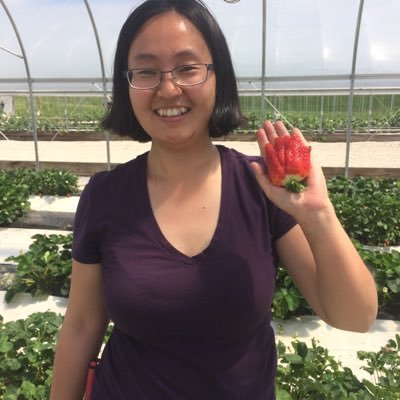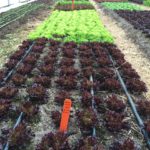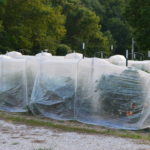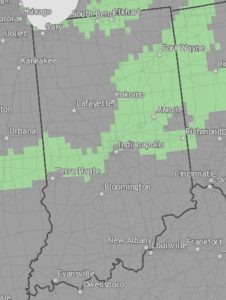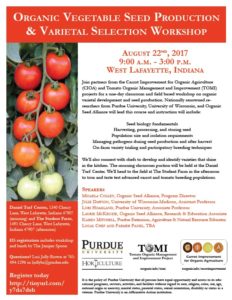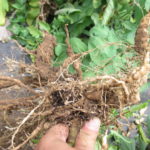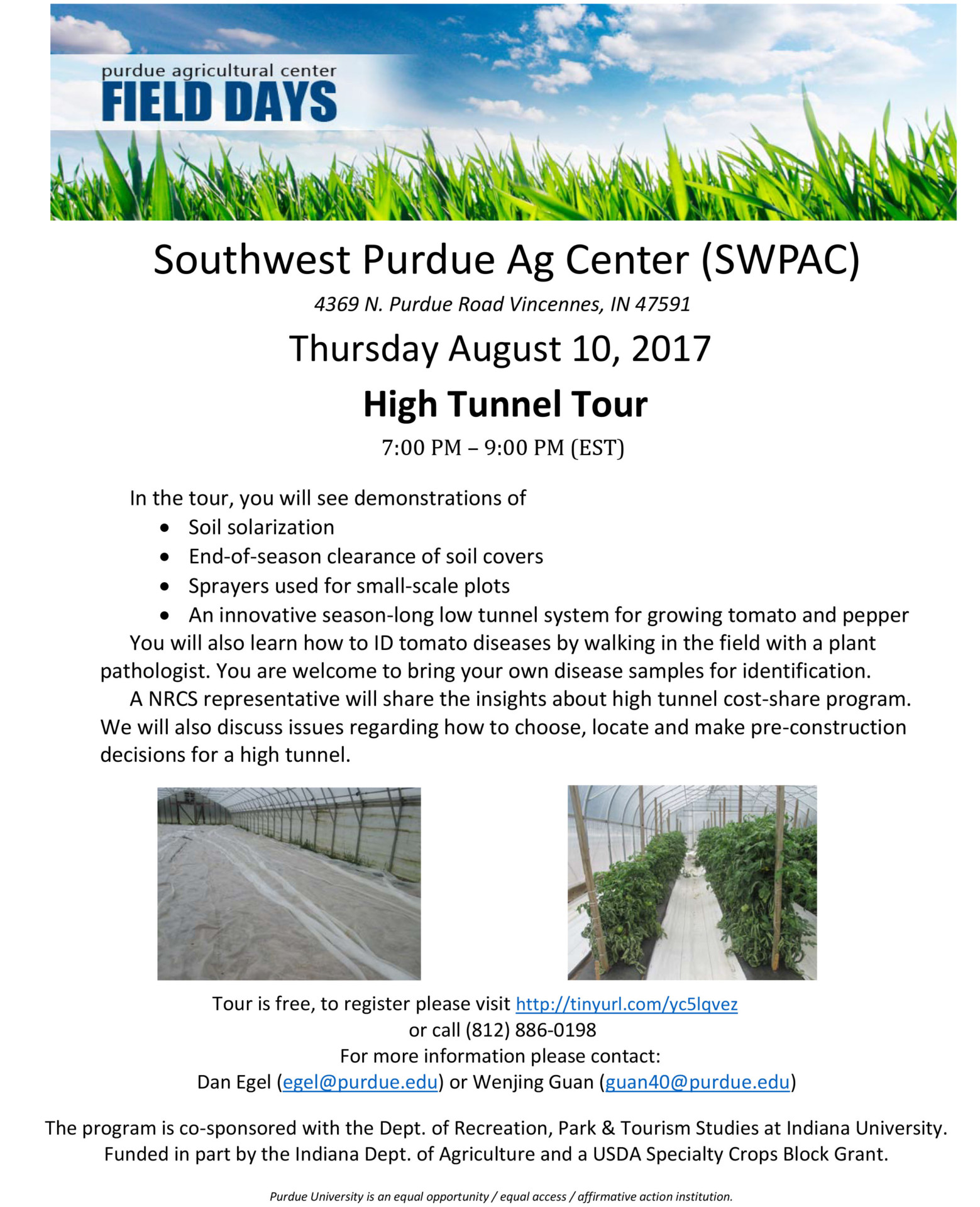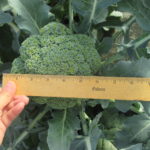Winter farmers markets are becoming more and more popular. Lettuce is a primary type of vegetables grown for the market. As we are finishing up summer crops, it is a good time to learn and refresh knowledge about lettuce. This article discusses some of the basics of growing lettuce in high tunnels, as well as[Read More…]
Tomato foliar diseases such as early blight, Septoria leaf blight, bacterial spot and speck that are commonly seen in the field are often less common on tomatoes grown in greenhouses and high tunnels. It is also true that high tunnel tomatoes have smoother skins than tomatoes grown in the fields. An important factor that determines[Read More…]
It got my attention recently that the newest USDA planting map is shifted northward compared to the one before. The planting map is based on the coldest winter temperatures of the past 30 years’ record. The most recent map is generated from data in 1981-2010, the prior one is based on data from 1971-2000. Planting[Read More…]
Organic Vegetable Seed Production & Varietal Selection Workshop Date: August 22, 2017, 9:00 am – 3:00 pm. Location: Daniel Turf Center, 1340 Cherry Ln, West Lafayette, IN, 47907. Registration: http://tinyurl.com/y7da7dsh Topics include Seed biology fundamentals; Harvesting, processing, and storing seed; Population size and isolation requirements; Managing pathogens during seed production and after harvest; On-farm variety[Read More…]
Farmer Rancher Program Farmers and ranchers are invited to submit grant proposals to explore sustainable agriculture solutions to problems on the farm or ranch. There are three types of competitive grants: individual grants ($7,500 maximum), team of two grants for two farmers/ranchers from separate operations who are working together ($15,000 maximum), and group grants for[Read More…]
The U.S. Department of Agriculture is currently accepting nominations from qualified fruit and vegetable industry members to fill 10 seats on the Fruit and Vegetable Industry Advisory Committee. This Committee is composed of 25 members from every commercial capacity within the fruit and vegetable industry including growers, distributors, processors, farmers market managers, food hubs etc.[Read More…]
The Midwestern Regional Climate Center, the USDA Midwest Climate Hub, and National Drought Mitigation Center (NDMC) are partnering to determine data needs and develop additional tools, educational resources and other information for producers to better adapt to a variable and changing climate. Changing climatic conditions are having a wide ranging impact on agriculture in the[Read More…]
In a recent grower visit in southwest Indiana, we saw a severe root-knot nematode infestation on high tunnel tomatoes. Soil fumigation is by far the most effective approach to control nematodes, but many soil fumigants are not labeled for greenhouse (high tunnel) use. In addition, the types of equipment that used for soil fumigation are[Read More…]
Southwest Purdue Ag Center High Tunnel Tour Date: Thursday, August 10, 7 p.m.- 9 p.m. (EDT) Location: Southwest Purdue Agricultural Center, 4669 North Purdue Road, Vincennes, IN, 47591 Registration: Visit http://tinyurl.com/yc5lqvez or call (812) 886-0198 For more information, contact: Wenjing Guan at guan40@purdue.edu or Dan Egel at egel@purdue.edu During the evening event at Southwest Purdue[Read More…]
A fall broccoli trial was conducted in a high tunnel at Southwest Purdue Ag Center in 2016 to test the potential of growing broccoli in high tunnels after tomatoes. This article describes what we found from the trial. Broccoli is a cool-season, frost-tolerant crop. The harvest portion of broccoli is the compact, slightly dome-shaped head[Read More…]
